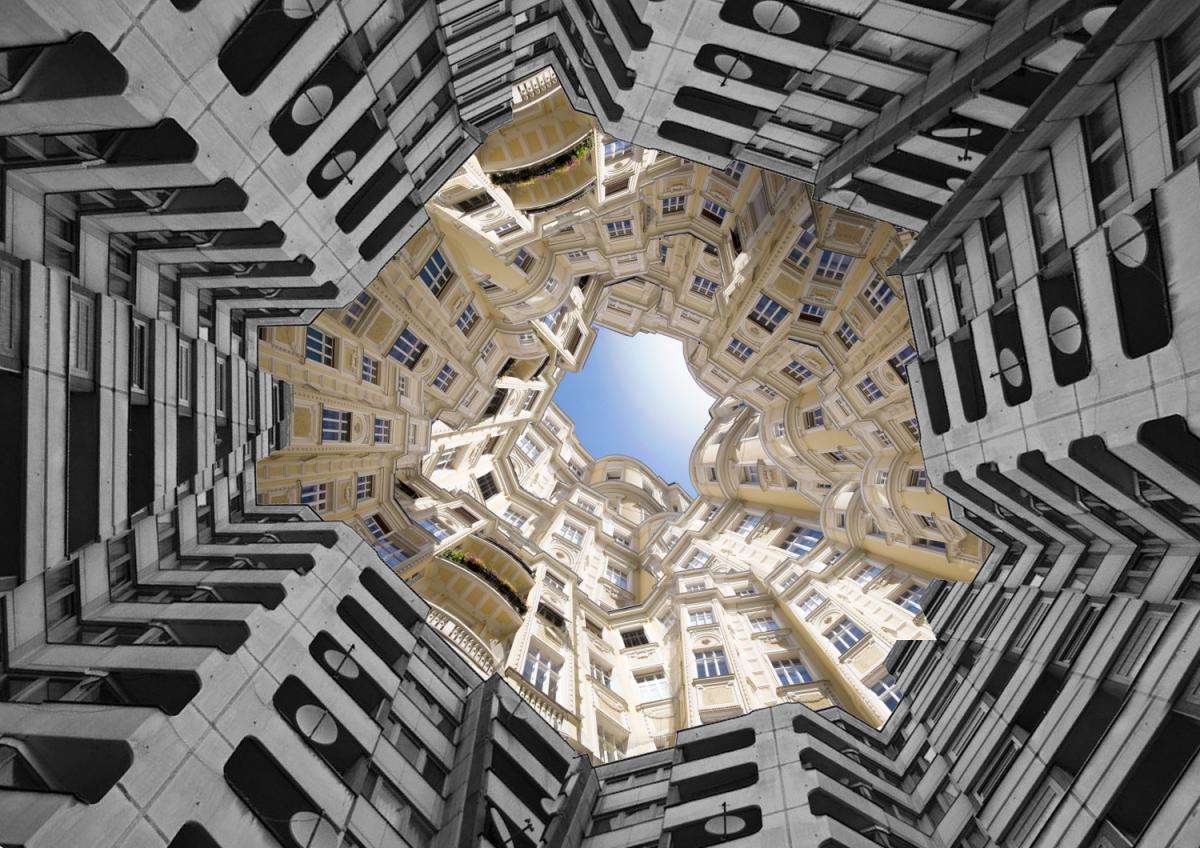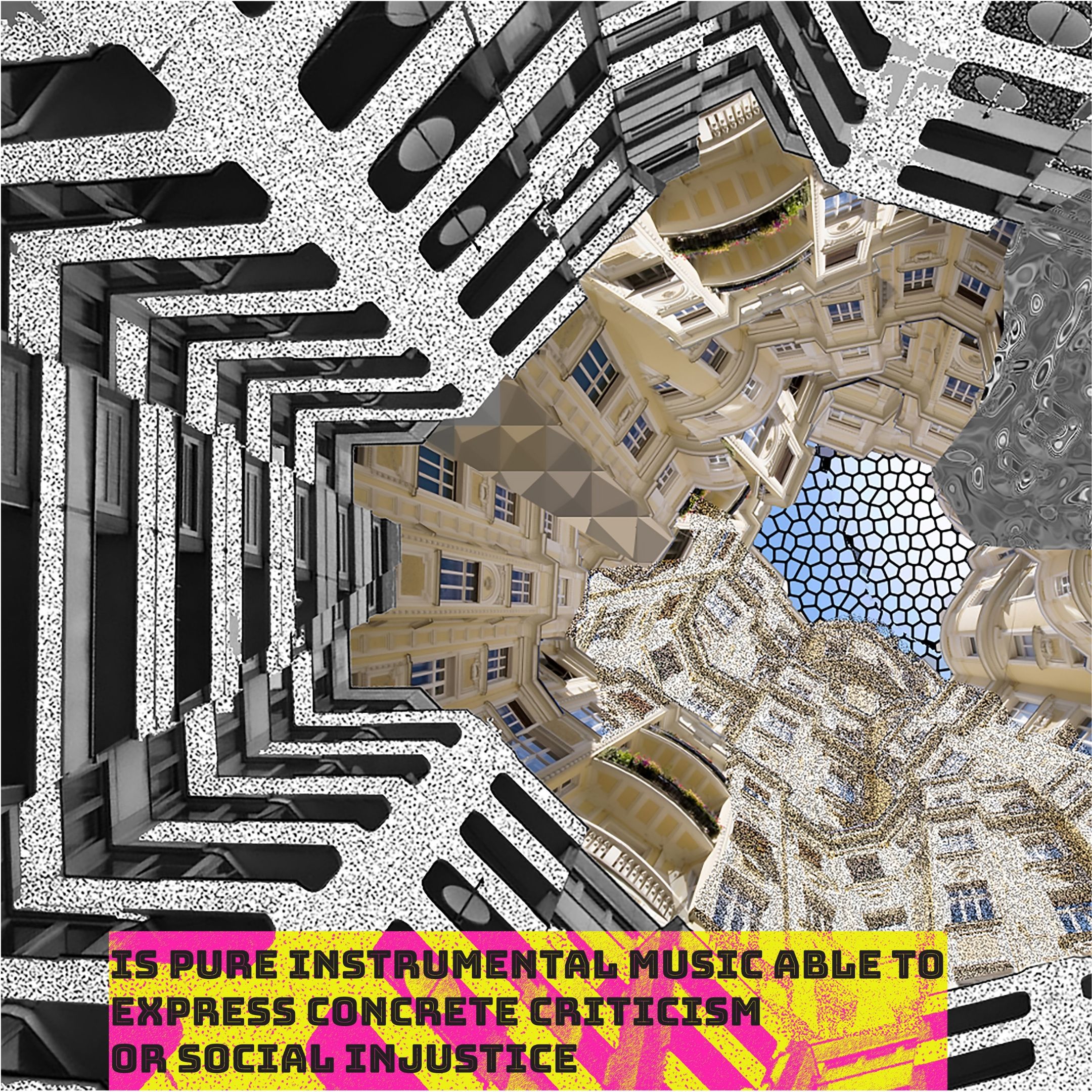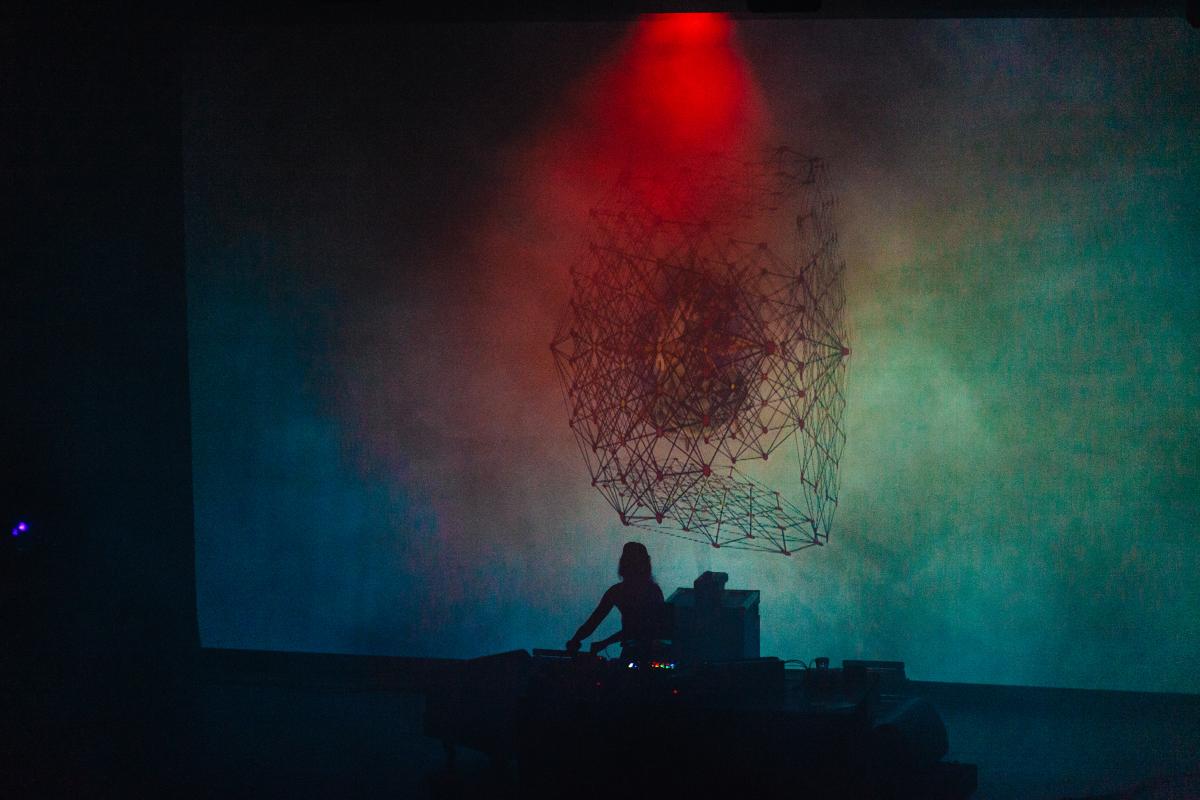
A Protest Song Without a Slogan
Often, the politics of a song are carried in its lyrics. However, can instrumental electronic music also create concrete criticism? Or provoke feelings that the listener can link to specific realities? Norient author Philipp Rhensius investigates the song «Gentrification Death Certificate» by experimental drone musician D. Glare and ends up in claustrophobic spaces built by transforming acoustics.
A dripping sound, like leaking water, amplified and warped, soon transforms into a low, sonoros drone. Its amplitude, therefore the musical movement, slowly moves up and down, creating sequences as the pitch gradually changes. Soon after, an alienated piano climbs up the scale, before suddenly, a poorly tuned bass guitar plays a few unrelated tones that reverberate through the air, reflecting back and forth with long decays, as if the player had beamed himself to a big, empty space. Something is wrong here. The room is radically changing in size, expanding and contracting like a deep breath in slow motion.
Instrumental music is abstract by nature. Sound is not as precise as words, at least in a semantic sense. Instead, sound always entails thousands of possible meanings. But is pure instrumental music able to express concrete criticism or social injustice? A simple reproduction of reality would not suffice. This is where abstraction plays an important role.
The experimental drone music of D. Glare, whose song I described above, surely does not copy the reality. Instead, it bends, cuts, comments and stretches it. It invites us into an imaginary setting that is, at least, hinting on real things. Here, it might refer to a space that is transforming constantly in size and volume, probably with the use of room modulating effects and specific recording techniques - while the drone might have been made by a recorded instrument that is manipulated afterwards. The bass guitar seems to be recorded with a microphone that is placed in the room.
With this in mind, but even more with the title of the song, «Gentrification Death Certificate», the abstract turns into something concrete. The immanent structure of the music communicates a certain distress and makes it a protest song without a slogan. We feel the precariousness of the living situation, hinted at by the sudden change of room size, resulting in a strange feeling between claustrophobia and freedom. Is this feeling intended? Not really, if we follow D. Glare: «There wasn't a grand idea behind making the record», he says in an email interview. Still, the song contains traces of Glare's experience. These traces might be vague in their meaning, but take shape after investigating the context, the album Style Synonymous With Technique (Zona Watusa 2018), which the song is on, is, in Glare's words, «a sort of diary of a strange existence, fleeting, slipping in and out of security gates late at night». It is, he writes in an email, about how «the effects of gentrification seemed intensely magnified, a society twisted in a way that shoves unwelcomed poverty into the front lines of where the money is».
If instrumental music is able to express criticism, the form and content has to coincide as it does here. The form would be the perceptible difficulties of the recording process resulting from the change of places, whereas the content is the dissonant, arhythmic sounds and, most importantly, the song title, as it is this that leads the perception in a quite explicit direction.
Music always contains a certain time and space, and the conditions that it is made in. «Gentrification Death Certificate» is a story about gentrification and its symptoms, the rise of rental costs and the eviction of people who are dependent on low rents. This story is musically aestheticised and therefore artificial, but by that it is able to express an alternative, more distanced, even less victimizing perspective. In this context, dripping water can turn into the leading motif of a protest song.
Biography
Published on June 15, 2018
Last updated on April 10, 2024
Topics
Snap


